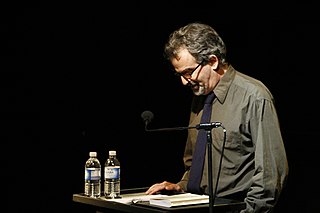A Quote by Billy Collins
The whole world of publishing is moving to electronic, but when you put a poem on a screen and you increase the type size, the shape of a poem changes.
Quote Topics
Related Quotes
Changes in size are not a consequence of changes in shape, but the reverse: changes in size often require changes in shape. To put it another way, size is a supreme regulator of all matters biological. No living entity can evolve or develop without taking size into consideration. Much more than that, size is a prime mover in evolution.
I keep feeling that there isn't one poem being written by any one of us - or a book or anything like that. The whole life of us writers, the whole product I guess I mean, is the one long poem - a community effort if you will. It's all the same poem. It doesn't belong to any one writer - it's God's poem perhaps. Or God's people's poem.
The subject of the poem usually dictates the rhythm or the rhyme and its form. Sometimes, when you finish the poem and you think the poem is finished, the poem says, "You're not finished with me yet," and you have to go back and revise, and you may have another poem altogether. It has its own life to live.
Lucky accidents seldom happen to writers who don't work. You will find that you may rewrite and rewrite a poem and it never seems quite right. Then a much better poem may come rather fast and you wonder why you bothered with all that work on the earlier poem. Actually, the hard work you do on one poem is put in on all poems. The hard work on the first poem is responsible for the sudden ease of the second. If you just sit around waiting for the easy ones, nothing will come. Get to work.





































